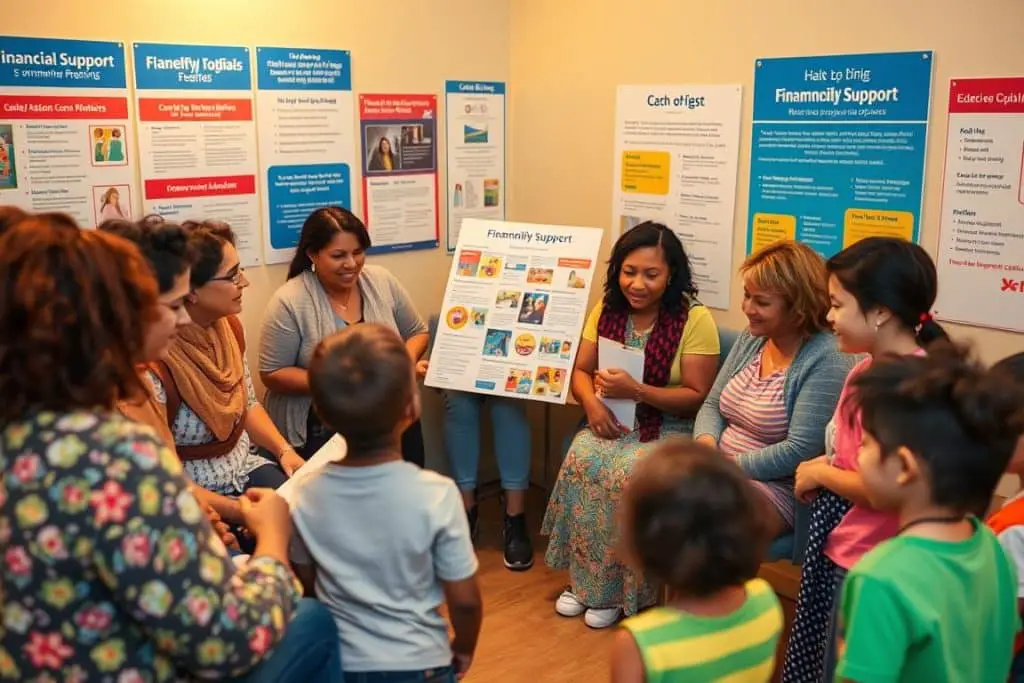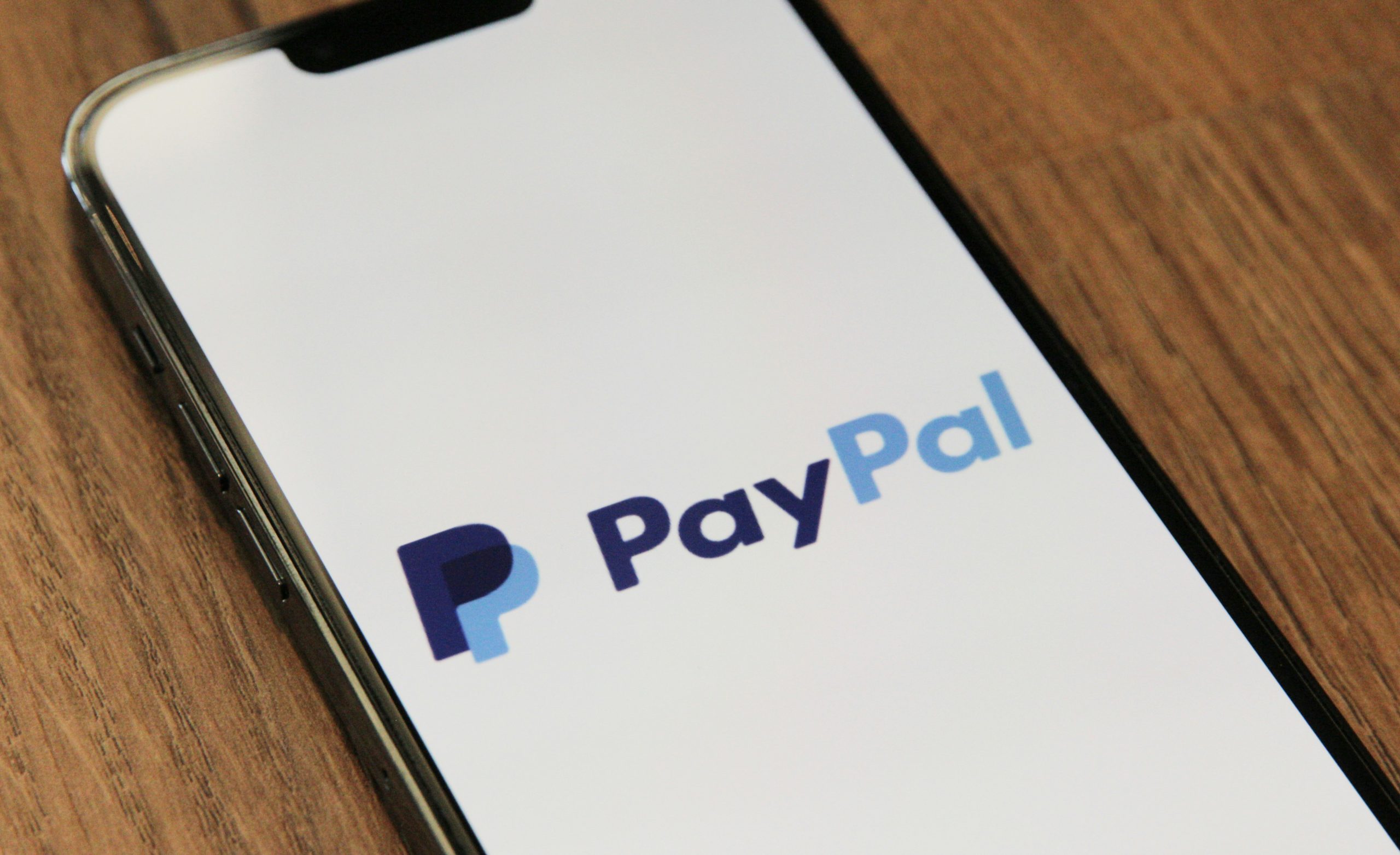How Families Can Access Life-Changing Financial Support Right Now

Imagine a single parent finally getting help for their groceries. Or a family keeping their home thanks to rental support. These are the life-changing moments that financial aid brings to families. In tough economic times, especially with the challenges of a pandemic, accessing relief programs for families is more than help—it’s a beacon of hope.
Your family’s stability might be just a few clicks or a phone call away. Let’s look into securing your household against financial difficulties. Help is available for family finances or wider financial support for households. For those most affected by COVID-19’s economic impacts, knowing how to seek out help can be crucial. The vital lifeline is there for you to reach out to.
Navigating these support options can greatly lessen your financial stress. Thanks to the American Rescue Plan and the American Families Plan, significant help is at your fingertips. These efforts are not just quick fixes but are investments in American families1.
Key Takeaways
- Discovering avenues for substantial financial relief for families can offer not only solace but also sustainable support.
- Information about relief programs for families is vital during the economic uncertainty caused by the pandemic.
- Utilizing resources like financial support for households ensures the well-being of American families.
- Government aids such as the American Rescue Plan provide critical tax credits and investments to undergird family finances1.
- Educational programs and healthcare assistance included in the American Families Plan are significant for long-term development and stability1.
Understanding Your Family’s Financial Needs
In today’s fast-paced economy, understanding your financial situation is crucial. Nearly three in four parents (73%) face challenges with their finances2. This shows the need for solid financial planning and using budgeting tools.
Following the 50-30-20 rule can improve your family’s financial health. It means spending 50% of your income on necessities, 30% on wants, and saving 20%2. This approach helps balance your budget and secure your future financially.
Creating an emergency fund is essential for financial safety2. Start by opening a high-yield savings account. Then, regularly transfer $50 to $100 into it to build this safety net2.
Good financial management is more than budgeting. It includes teaching your family about money. Hosting a ‘Family Finance Night’ is a fun way to improve everyone’s financial knowledge2. For young kids, opening an account with just $5 through programs like the Kids Club at AODFCU teaches them about saving from an early age3.
For teens aged 16-19, the Rising Star Teen Draft Account at AODFCU is ideal. It offers independence with no fees and a free debit card3. This helps them learn about managing money wisely.
Regular financial planning meetings can keep your plan up to date2. Working with advisors and using online tools makes managing your finances easier.
| Program | Age Group | Starting Deposit | Features |
|---|---|---|---|
| Kids Club at AODFCU | 0-6 years | $5 | Encourages savings from an early age |
| Rising Star Teen Draft Account | 16-19 years | No initial deposit required | No service fees, free debit card |
Discuss and review your family’s financial goals often. Adjust your budget for lifestyle changes or save for education and retirement. Planning and understanding are key to financial stability and assistance.
Financial Relief for Families: Navigating Assistance Programs
Finding financial help for families can feel overwhelming. It’s hard to know where to start. But learning about available programs can really help.
Many programs offer support to families in need. Federal and state programs like TANF and LIHEAP are designed to provide quick help4. The COVID-19 pandemic has also increased benefits. The Affordable Connectivity Program (ACP) helps families afford the internet5.
Identifying Federal and State Relief Programs
It’s important to find the right help for your family’s financial struggles. Programs like SNAP and School meal programs make sure families have enough to eat4. If you’ve lost your job, unemployment insurance could give you short-term support5.
Applying for Childcare and Educational Grants
Childcare is expensive, but there is help. Educational grants and programs can help cover these costs4. Knowing how to apply for this help is key to getting the support you need.
Exploring Health Care Financial Support Options
Health care costs can add up quickly. The SSI program helps families with blind or disabled children manage these expenses4. Other programs under ACA, like the ACP, can also assist in covering healthcare costs5.
Emergency Funds and Crisis Assistance
During sudden financial problems, emergency programs are crucial. Hopelink’s Financial Assistance Program helps with things like medical bills or job loss. This support can help you stay stable financially6.
Getting to know financial relief programs is key to overcoming financial challenges. These resources can change a difficult situation into something manageable. This ensures your family has the necessary support when times get tough.
Creating a Sustainable Family Budget
Creating a family budget is more than getting by month to month. It’s about setting up your family for financial success in the long run. In today’s world, knowing how to wisely use your money can bring financial relief for families. It also sets the stage for wealth in the future.
The Role of Budgeting in Family Financial Health
Keeping a detailed budget lets you track what you earn and spend, cutting down on money worries. Using the 50/30/20 rule for budgeting, you can sort your income into needs, wants, and savings or paying off debt. This strategy helps in balancing your money7. It makes sure you cover your basics while saving for later, boosting family financial assistance.
Setting Up Emergency Funds for Future Stability
Experts say it’s vital to have an emergency fund for sound budget planning. This fund is a safety net preventing debt when sudden expenses hit. Ideally, it should have three to six months of expenses, offering assistance for family finances in tough times. To start this fund, save regularly8. Sun Life Asset Management Company, Inc. supports this by helping investments grow with their target date funds.
Strategies for Balancing Education and Retirement Savings
Finding a balance between saving for education and retirement is tough but needed for your family’s future. Advisers suggest using long-term investments like mutual funds to reach big goals. These include retirement or home purchases and education savings8. This approach addresses the tough choice between meeting educational needs now and a secure retirement later.
Here are five steps to ensure effective family budgeting resources are in place:
- Define your financial goals clearly and prioritize them.
- Utilize online budgeting tools to track and manage your expenses efficiently7.
- Regularly review and adjust your budget to fit changing financial circumstances7.
- Teach children about financial responsibility to instill a culture of saving within the family8.
- Seek professional guidance to optimize your financial strategies8.
| Category | Percentage of Income |
|---|---|
| Needs | 50% |
| Wants | 30% |
| Savings or Debt Repayment | 20% |
By taking these steps, you ensure your current money management and future financial safety net. This gives you family budgeting resources ready for any financial challenge.
Conclusion
In today’s tough economy, families in the US find hope through financial aid programs. Over half of the country, including 53% in New Mexico, lives in places without enough child care. This makes finding and using debt relief for families super important9. The high cost of child care takes up to 33% of a single parent’s income. At the same time, the pay for child care providers stays low. This shows why such programs are crucial for families in need9.
In 2018, healthcare places gave out $26 billion in charity care. This shows how these financial aids play a big role in helping people get medical care and medicine10. Also, changes to the Child Tax Credit could help a lot. They plan to increase the refundable part to $1,800 in 2023. This could greatly reduce child poverty and help millions11.
Firstly, it’s vital to understand your family’s financial needs. This is the first step in making the most out of relief programs. With good planning and saving, you can get through money troubles. Having an emergency fund is also key. Remember, making smart financial choices and taking action early can lead your family to a stable and secure future. Financial aid programs are not just numbers. They are real help, offering hope and a chance for families to have a brighter future.
FAQ
What immediate financial relief options are available for families?
How can I better understand my family’s financial assistance needs?
How do federal and state relief programs help with family finances?
What should I know about applying for childcare and educational grants?
Where can I find healthcare financial support options for my family?
What is the importance of emergency funds for family financial health?
How can I balance savings for my children’s education and my retirement?
What strategies can families use to tackle debt and manage finances effectively?
Source Links
- FACT SHEET: The American Families Plan | The White House – https://www.whitehouse.gov/briefing-room/statements-releases/2021/04/28/fact-sheet-the-american-families-plan/
- Invest in Their Future: A Guide to Family Financial Planning – https://www.investopedia.com/guide-to-family-financial-planning-8418295
- “We are Family” and together Building Stronger Foundations: The Importance of Family Financial Education – AOD Federal Credit Union – https://www.aodfcu.com/article/we-are-family-and-together-building-stronger-foundations-the-importance-of-family-financial-education/
- Financial Assistance for Families | Childcare.gov – https://childcare.gov/consumer-education/financial-assistance-for-families
- Government Assistance Programs: What’s Available and Where to Apply – https://www.investopedia.com/government-assistance-programs-4845368
- Financial Assistance – Hopelink – https://www.hopelink.org/programs/financial-assistance/
- How to Create a Family Budget – NerdWallet – https://www.nerdwallet.com/article/finance/how-to-create-a-family-budget
- How to be financially sustainable as a family – https://www.sunlife.com.ph/en/life-goals/take-care-of-your-family/how-to-be-financially-sustainable-as-a-family/
- Sustained Child Care Funding Is Critical to Support Families and the U.S. Economy – Sustained Child Care Funding Is Critical to Support Families and the U.S. Economy – https://www.jec.senate.gov/public/index.cfm/democrats/2023/9/sustained-child-care-funding-is-critical-to-support-families-and-the-u-s-economy
- The Impact of Financial Assistance Programs on Health Care Utilization: Evidence from Kaiser Permanente – https://www.ncbi.nlm.nih.gov/pmc/articles/PMC9634821/
- The new Child Tax Credit deal is really a safety net deal—and by that measure it is only a start – https://www.brookings.edu/articles/the-new-child-tax-credit-deal-is-really-a-safety-net-deal-and-by-that-measure-it-is-only-a-start/








